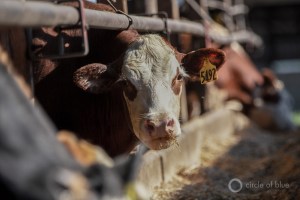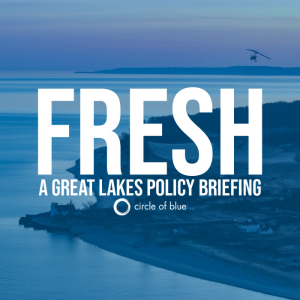Federal Water Tap, December 11: EPA Rejects Florida Water Quality Standards
The Rundown
- EPA proposes stronger water quality standards for Florida’s rivers and lakes.
- Interior Department provides funding for solar panels atop a Gila River Indian Community irrigation canal.
- EPA tests tap water in the U.S. Virgin Islands due to lead concerns.
- White House, during a tribal nations summit, promises more federal cooperation with tribes.
- Property owners who participate in low-income housing programs are eligible for a federal water and energy efficiency audit.
- GAO looks at ways to reduce the cost of federal crop insurance.
And lastly, senators in the Rio Grande basin ask for federal funding to prepare for a drier climate.
“The Rio Grande is a natural resource of inestimable value that is under severe threat. Ample, coordinated federal investment in the Rio Grande will enhance water security in the region, reduce risks to communities and agriculture, and increase the pace and scale of basin-wide water security efforts.” — Letter from Colorado and New Mexico senators to Deb Haaland, secretary of the Interior. The senators requested a “strategic plan” to leverage federal funds for water security and climate resilience in the Rio Grande basin. The river dried up in parts of Albuquerque in each of the last two years.
In context: Billions in Federal Assistance after New Mexico’s Largest Wildfire. But Little Money to Repair Streams
By the Numbers
$17.3 Billion: Cost, in 2022, of the federal crop insurance program, including payments to insurance companies for administration. That’s according to a Government Accountability Office report on how to reduce its costs. Two options: reduce the profit margin for insurance companies and cut premium subsidies for high-income farmers.
$5.6 Million: Funding from the Department of the Interior to the Gila River Indian Community to build solar panels over the Casa Blanca irrigation canal. The panels, which will generate electricity and reduce water evaporation, will cover more than a half mile of canal.
News Briefs
Florida Water Quality
Arguing that state standards are inadequate, the U.S. Environmental Protection Agency is proposing stricter pollution limits for Florida’s rivers, lakes, and coast.
The new and revised limits would center on 73 pollutants that affect human health through activities like swimming, municipal water supply, and eating wild-caught fish and shellfish.
Last updated in 1992, the state’s standards do not account for new information on fish consumption, the EPA argues. People in the state eat more fish – and thus are exposed to more pollutants – than assumed in the current standards.
Public comments are being accepted through February 6, 2024. Submit them via www.regulations.gov using docket number EPA–HQ–OW–2023–0378.
Water and Energy Efficiency in Low-Income Housing
Property owners that participate in federal low-income housing programs are now able to audit the water and energy use of their multi-family buildings.
Run by the Department of Housing and Urban Development, the benchmarking program is free for property owners.
A separate program – the Green and Resilient Retrofit Program – provides billions in loans and grants to make buildings more energy and water efficient.
Outdated and leaky plumbing is not only a waste of water. It also increases water bills, which is an extra burden for low-income households.
Studies and Reports
Federal Relationship with Tribes
As part of a summit with tribal nations, the White House released a report outlining its actions to bolster tribal sovereignty.
The report calls out more than 190 co-management/co-stewardship agreements signed this year between tribal nations and the Interior Department or U.S. Forest Service.
The summit was marked by promises of greater collaboration and more tribal autonomy. The EPA released a new policy on consultation with tribes. And President Biden signed an executive order to reform how federal funding is administered for tribes.
On the Radar
Lead in U.S. Virgin Islands Drinking Water
EPA Region 2 will hold a public meeting on December 13 to discuss high lead levels found in drinking water on the island of St. Croix.
The EPA and local agencies completed a round of sampling in November. Those results indicate that lead is coming from several sources within the water distribution system.
Information on attending the public meeting, virtually or in person, can be found here.
Water Resources Development Act Hearing
On December 13, a House Transportation and Infrastructure subcommittee will hold a hearing on the next edition of the Water Resources Development Act, the legislation that funds ports, levees, dams, wetlands restoration, and other Army Corps projects.
Threatened or Endangered Salmon?
Fisheries regulators have accepted a petition from environmental groups to assess the health of a segment of spring-run Chinook salmon and determine whether it should be classified as threatened or endangered.
The National Marine Fisheries Service will conduct more analysis of salmon that return to rivers on Washington’s west coast. The population segment includes those that spawn in rivers between the Columbia and Elwha.
Data relevant to the assessment should be submitted by February 5, 2024, via www.regulations.gov using docket NOAA–NMFS–2023–0148.
Dam Safety Funding
The deadline to apply for a new Army Corps of Engineers program to finance safety upgrades at dams is coming up soon.
The last day to apply for $7.5 billion in financing assistance is December 19.
Federal Water Tap is a weekly digest spotting trends in U.S. government water policy. To get more water news, follow Circle of Blue on Twitter and sign up for our newsletter.
Brett writes about agriculture, energy, infrastructure, and the politics and economics of water in the United States. He also writes the Federal Water Tap, Circle of Blue’s weekly digest of U.S. government water news. He is the winner of two Society of Environmental Journalists reporting awards, one of the top honors in American environmental journalism: first place for explanatory reporting for a series on septic system pollution in the United States(2016) and third place for beat reporting in a small market (2014). He received the Sierra Club’s Distinguished Service Award in 2018. Brett lives in Seattle, where he hikes the mountains and bakes pies. Contact Brett Walton







Leave a Reply
Want to join the discussion?Feel free to contribute!